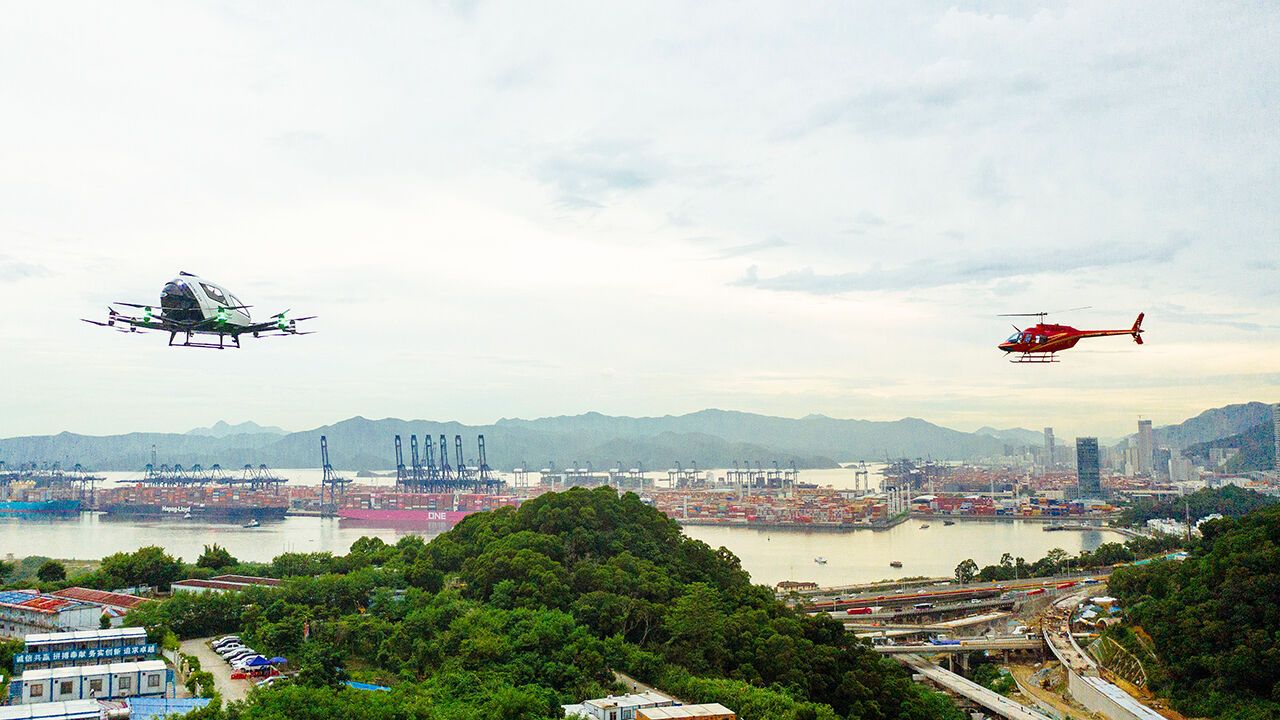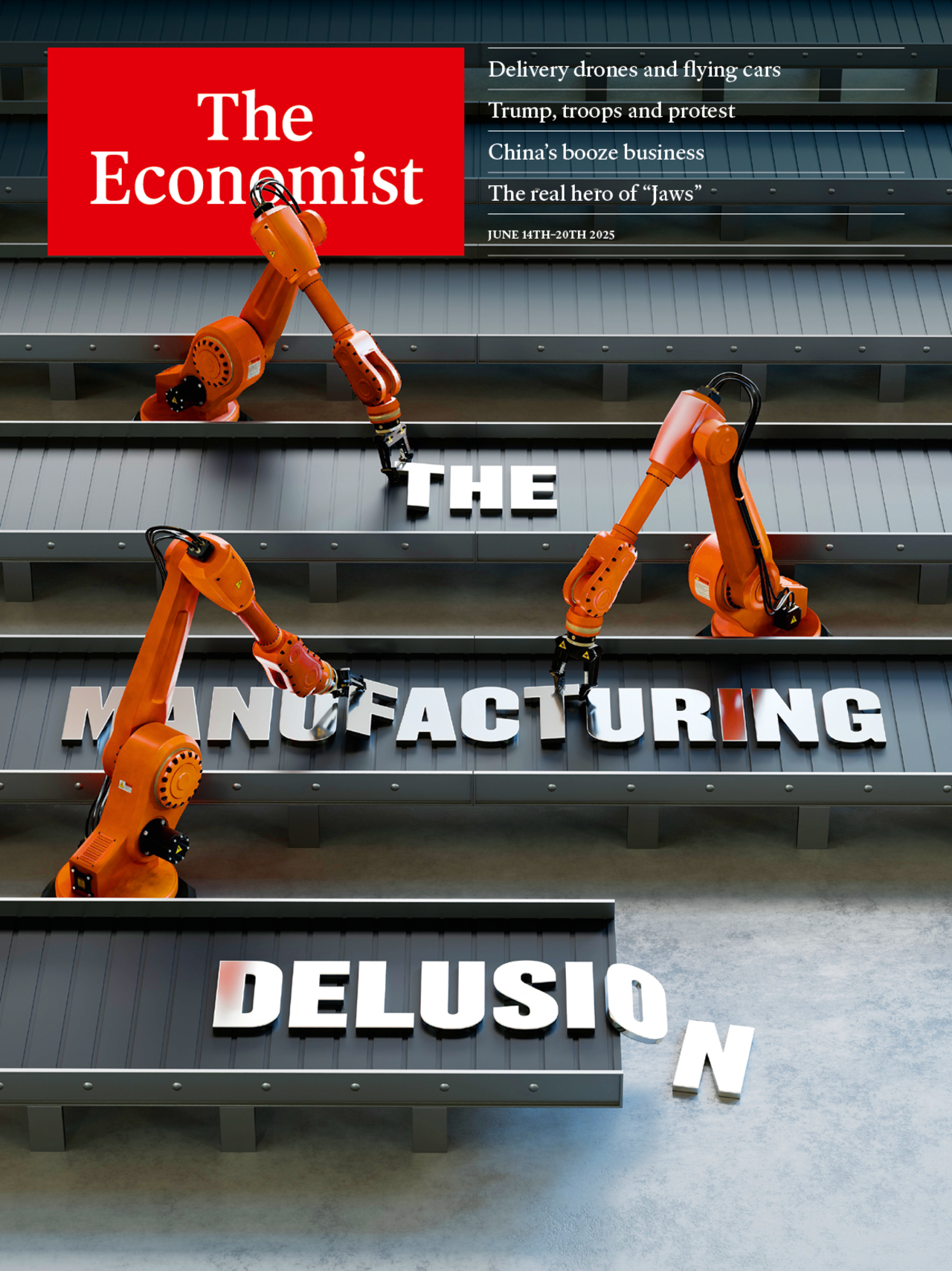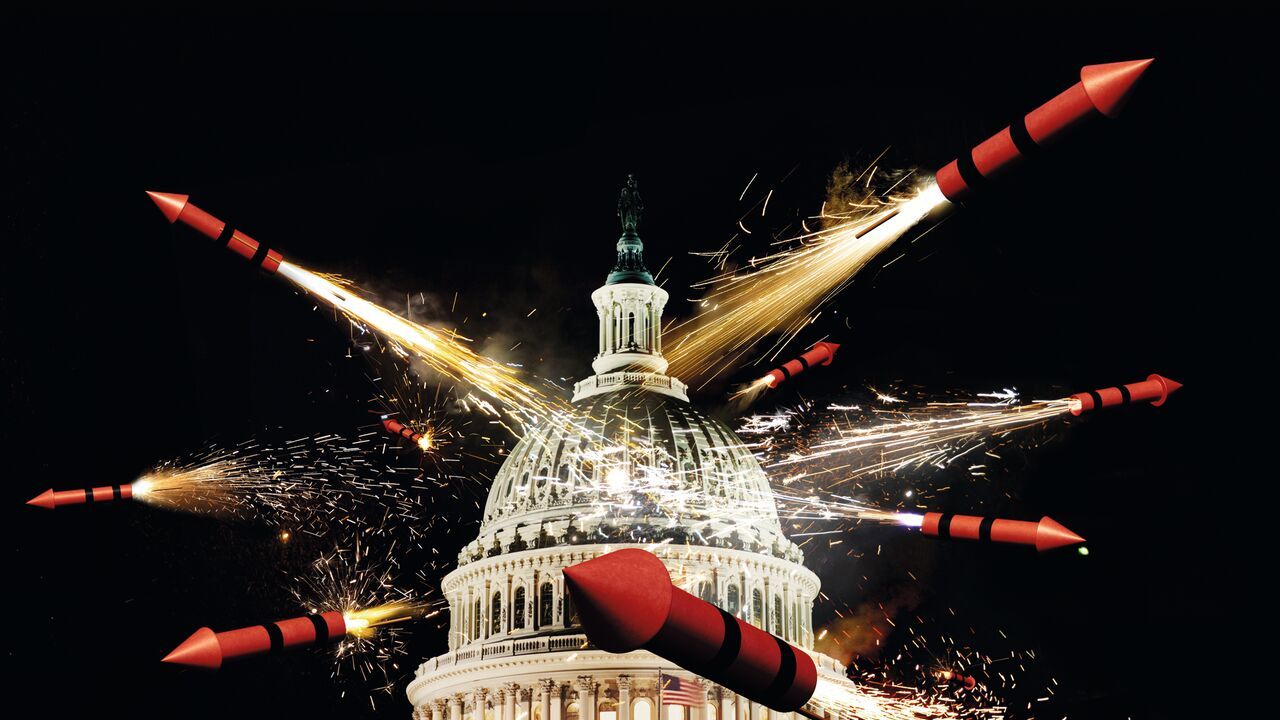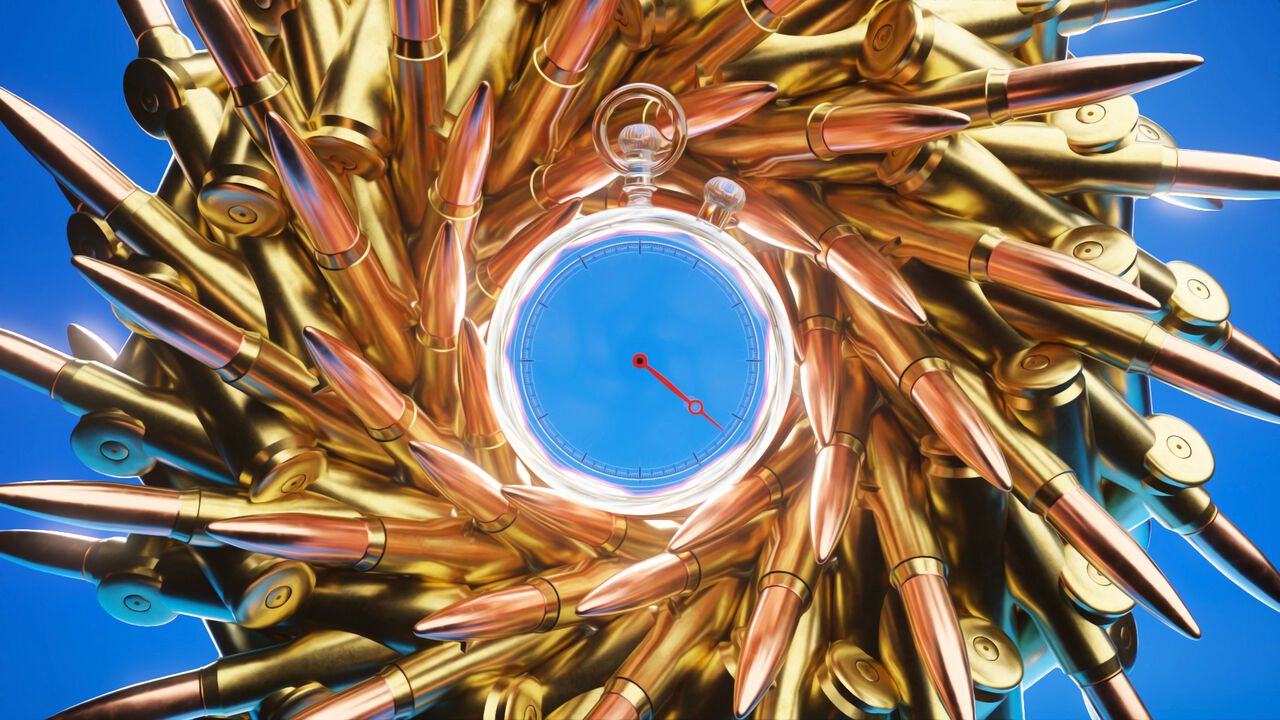China’s “low-altitude economy” is taking off
The authorities have found a new industry they want Chinese firms to dominate

YOUR CORRESPONDENT’S heart raced as the door thudded shut. She was alone in the plush two-seat vehicle, but too nervous to take much pleasure in the leather upholstery and panoramic windows. The 16 propellers arranged in a circle around the passenger cabin began to turn, and then the electric vertical take-off and landing (eVTOL) aircraft—to all intents and purposes, a self-flying car—began to rise smoothly into the air. It climbed to a height of about 50 metres, affording sweeping views of the cranes and docks of an industrial neighbourhood of Guangzhou, before descending again to the same spot from which it took off, at the headquarters of EHang, the company that made it. EHang had invited The Economist to try out the vehicle, just after a social-media influencer and just before an investor in the firm. But in March EHang became the first eVTOL-maker in the world to receive a licence to carry passengers commercially. It is planning to start offering flights to the public soon in Guangzhou and another big city, Hefei.
This article appeared in the Briefing section of the print edition under the headline “Delivery drones and flying cars!”
Briefing
June 14th 2025
From the June 14th 2025 edition
Discover stories from this section and more in the list of contents
Explore the edition
The obscure Senate functionary whose word is law
Elizabeth MacDonough does more to shape legislation than most congressmen

The big beautiful bill reveals the hollowness of Trumponomics
Republicans mark America’s birthday with a profligate but insubstantial law

The war in Ukraine shows the West can re-arm without re-industrialising
Industrial capacity in peacetime is no longer necessary for success during war
How much did America’s bombs damage Iran’s nuclear programme?
Assessments vary wildly and it is impossible to know for sure
Israel’s war with Iran is over
But its impact is uncertain
Israel’s blitz on Iran is fraught with uncertainty
Much hinges on the stubborn supreme leader and America’s mercurial president

